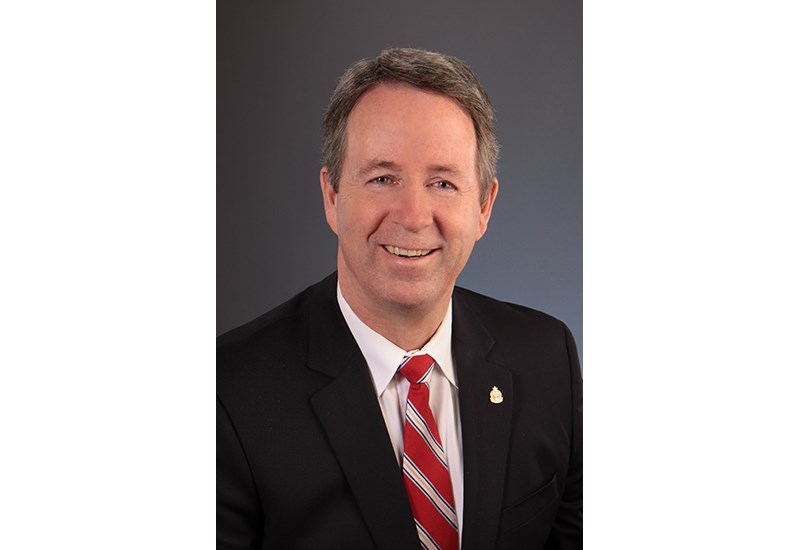Richmond is considering whether to end its contracted service with the RCMP and create its own municipal police department similar to Delta, Vancouver, New Westminster and other cities in British Columbia and Canada.
This should not be seen as a negative reflection of the RCMP, a nationally and internationally recognized icon of Canada, but rather as a natural progression for a growing Canadian city.
Richmond has changed a lot since 1950 when the RCMP began policing the farming/fishing community. The question now is, what model provides the most effective and accountable form of community policing in an increasingly diverse, growing urban city? Policing has also changed a lot over the years and urban policing is a specialized form of it.
Police departments are an integral part of a city’s identity. One only has to think about the London Met, the LAPD or NYPD to see the emphasis on unique local issues and specialization.
The same is true in Canada, where larger cities with local police departments focus on issues unique to being urban centres. But it’s not just major cities such as Toronto, Montreal, Ottawa, Winnipeg, Regina, Saskatoon, Edmonton and Calgary that have their own police departments.
So do cities much smaller than Richmond, such as Winkler and Brandon, Manitoba; Moose Jaw and Prince Albert, Saskatchewan; Medicine Hat and Taber, Alta; and Nelson and Central Saanich, B.C. It’s important that police departments reflect the local community priorities, including the vision, mission and core values.
A key area of effectiveness concerns the retention of experienced personnel and this is true for any business or organization. The RCMP has many talented members, but it also has a vast array of responsibilities throughout Canada and with international policing partners. In addition to contracted provincial and municipal (cities and towns) policing, it is responsible for demanding and complex investigations including, but not limited to, commercial crime, firearms, maritime and border security, organized crime and terrorism, just to name a few.
While these responsibilities provide RCMP members with great career opportunities and valuable experience, they also result in a higher turnover of personnel than in municipal departments. Training and developing police officers is expensive and labour intensive. It eliminates the ongoing “training ground” scenario experienced in Richmond.
In terms of ongoing costs, it’s been suggested the annual operational police budget could increase by two or three per cent if Richmond opted for a local police department, but this is highly speculative. There is no evidence ongoing costs will have to increase. In fact, in 2014 Richmond spent 21 cents of every dollar on policing, whereas Vancouver spent 20 cents. On average, cities spend about 20 per cent of their respective annual operating budgets on policing, regardless of whether they have a municipal department or an RCMP detachment. For example, per capita (the VPD is about 6.5 times larger), Richmond’s reported policing budget (2015) of $41.5 million was proportionately larger (41.5 x 6.5 = 269.75 million not including civilian staff) than Vancouver’s ($257.5 million including civilian staff). Admittedly, comparisons are difficult.
However, here is the take away: municipal police departments such as those in Delta, New Westminster and Abbotsford have to make their case to their city councils and no over-arching provincial contract can trump those decisions.
Accountability and transparency are enhanced with a police board, which, in effect, would be the police department’s employer. The board would have real authority including: hiring and firing the chief constable; working with the chief in the selection of the police executive; actively developing and approving police policy; investigating service and policy (systemic) complaints from the public; leading and approving the strategic plan; dealing with human resources issues; and reviewing, guiding and approving the budget submission to city council.
The board is chaired by the mayor with one city appointment and typically six other provincial government appointments. The provincial appointments are made in consultation with the city and would be qualified residents of Richmond with demonstrated track records. The board provides effective local accountability and civilian oversight. Police boards do not exist with the RCMP model.
Accountability, transparency and civilian oversight are also provided through the B.C. Police Act (BCPA) and the Office of the Police Complaint Commissioner (OPCC), which set out standards and provide an independent, disciplinary process regarding complaints. The BCPA and the OPCC do not apply to the RCMP since it’s a national force and is covered by the RCMP Act.
Moreover, shifting schedules, deployment models and community initiatives can be tailored to meet Richmond’s unique needs. For example, criminal activity and calls for service can be analyzed and shift models can be developed to, as closely as practicable, match the deployment (numbers of police working) to the times, days and areas where calls for service (crime) are predictably going to occur.
Richmond is a unique, vibrant major city. Policing, similar to other sectors such as teaching and nursing, is more specialized than it was 65 years ago.
Urban policing is a form of police specialization and a locally focused Richmond police department, that reflects local vision and values, is an affordable and effective policing model.
Andy Hobbs is a retired VPD member with 35 years of service, grew up in Richmond, is a local volunteer, and a former two-term school trustee



